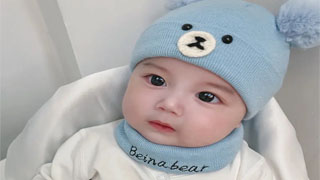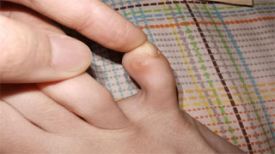
Article excerpt: "Traditional Chinese Medicine Ancient Methods for Infant and Child Health Preservation"
A mother asked:
My baby has been crying at night since birth. I didn't understand before, maybe because an elderly person said that the child might see something unclean at night and feel scared, or because they were scared by noisy noises when they went out during the day, they would cry at night.
Is my child scared? A friend came to my house very late and cherished her, so she kissed the baby. She woke up immediately and cried for a whole month since then, crying for two hours every day.
Dr. Peng Xin replied:
Some children are restless at night. Of course, most children will wake up a few times at night, urinate, or breastfeed, which is normal. Some children are very restless at night, relatively quiet during the day, and prone to this at night, especially crying and restless. Some cry all night and then sleep during the day. These all belong to the category of night crying, which is a disease of pediatric night crying.
The most typical diagnosis of nocturia is to cry uncontrollably at night, sometimes and then stop crying, and then cry at regular intervals every night for a period of time, not two days after crying today, but for more than a week. Even staying up all night and having difficulty falling asleep belong to night crying syndrome.
Crying at night may be accompanied by other illnesses
What I just talked about is a simple night cry syndrome, without any other comorbidities. Some children may have other comorbidities that cause night cry. For example, fever, mouth sores, and intestinal intussusception can all cause children to cry at night. Small intestine hernia, intestinal torsion, abdominal bloating, spasms, labor pains, malnutrition, rickets, and other conditions in children can all cause night crying in babies.
Malnutrition and rickets are usually accompanied by poor physical development. Otitis media, skin diseases, and even hookworm diseases, as well as parasitic diseases, can cause night crying, which is not within the scope of our discussion in this chapter. Those are basically accompanied by other illnesses, such as otitis media and ear pain. Parasitic diseases are pathological, not physiological.
Here, what our parents need to learn is to distinguish between crying of a general nature and crying at night. Generally, children cry because they are either too cold, too hot, in pain, hungry, or want to urinate or defecate. They will express themselves in the form of crying, and once we meet their requirements, they will stop. Night crying is not like that. He cries no matter how much he satisfies it. These are all distinguishing points. The situation we are talking about here is neither a pathological manifestation nor a physiological need to cry, but a pathological condition.
Disclaimer: This article is a sharing of health knowledge. The drugs, prescriptions, acupuncture and moxibustion and other treatment and health preserving methods mentioned in this article should be applied under the guidance of professional doctors, and should not be applied by yourself. We are not responsible for any issues arising from improper use.


